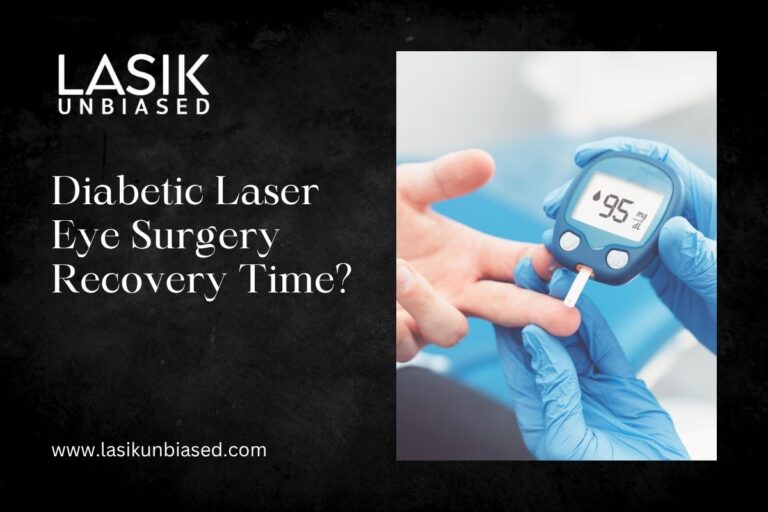Most people recover from diabetic laser eye surgery within a few days to a week, but full healing and vision stabilisation may take several weeks to a few months, depending on the type of procedure, your overall health, and how well you manage your diabetes.
Understanding what to expect during this recovery period can help you protect your eyesight and support long-term eye health.
Laser eye surgery for diabetes-related eye conditions—especially diabetic retinopathy—is a vital step in preserving vision. But what about the days and weeks after your procedure? Let’s explore the typical recovery timeline, what you might experience, and how to take care of your eyes for the best possible outcome.
How Long Is Recovery After Diabetic Laser Eye Surgery?
Typical Recovery Timeline
- Immediate Recovery (First 24–72 hours):
-
- Most patients experience blurred vision, mild discomfort, and sensitivity to light for a few hours to several days after laser treatment.
- You may need to wear an eye patch or shield for the first day or two to protect your eye.
- It’s common to see floaters or the pattern of the laser in your vision—these usually fade over weeks or months.
- Short-Term Recovery (First 1–4 weeks):
-
- Vision gradually clears, and most discomfort subsides within two to four weeks.
- You should avoid strenuous activities, swimming, and eye makeup for at least a week or as your doctor advises.
- Follow-up appointments are typically scheduled within the first few weeks to monitor healing and check for complications.
- Long-Term Recovery (1–3 months and beyond):
-
- Full healing and vision stabilisation may take several weeks to months, especially if you had extensive laser treatment or underlying health issues.
- Some effects, like reduced night or peripheral vision, can be permanent, especially after panretinal photocoagulation (PRP).
- Consistently managing diabetes and scheduling routine eye check-ups are crucial for maintaining long-term eye health.
What Affects Diabetic Laser Eye Surgery Recovery Time?
Type and Extent of Laser Procedure
- Focal/Grid Laser Treatment: Targets specific areas of leakage or swelling in the retina (macular edema). Recovery is often faster, with most people resuming normal activities in a few days to a week.
- Panretinal Photocoagulation (PRP): Treats widespread abnormal blood vessels in advanced retinopathy. Recovery can take longer, with more noticeable changes in peripheral and night vision.
Individual Health Factors
- Blood Sugar Control: Well-managed diabetes supports faster healing and lowers the risk of complications.
- Other Health Conditions: High blood pressure, kidney disease, or other systemic illnesses may slow recovery.
- Age and Overall Health: Older adults or those with chronic health issues may take longer to heal.
What Are Normal Side Effects During Recovery?
It’s common to experience:
- Blurred vision for several hours to days
- Light sensitivity—wear sunglasses as needed
- Mild discomfort or aching—over-the-counter pain relievers can help
- Floaters or spots in your vision, which usually fade over time
- Temporary changes in colour or night vision
These effects should gradually improve. If you notice severe pain, sudden vision loss, or worsening symptoms, contact your doctor immediately.
How to Care for Your Eyes During Recovery?
Follow These Tips for a Smooth Recovery
- Apply the prescribed eye drops to control inflammation and guard against infection.
- Avoid rubbing or touching your eyes for at least a week.
- Protect your eyes from water, dust, and bright light—wear sunglasses outdoors and avoid swimming or saunas for two weeks.
- Rest your eyes by taking breaks from screens and avoiding strenuous activities.
- Attend all follow-up appointments to monitor healing and catch any complications early.
- Maintain good blood sugar control to support healing and prevent further eye damage.
- Eat a balanced diet and stay hydrated to promote overall health and recovery.
What Restrictions Should You Expect After Surgery?
- Driving: Avoid driving until your vision clears and your doctor gives you the go-ahead—this may take a few days to a week.
- Exercise: Stick to low-impact activities like walking or gentle stretching in the first week. Avoid heavy lifting, contact sports, or swimming for at least two weeks, or as advised by your doctor.
- Makeup and Eye Care: Avoid eye makeup, creams, and lotions around the eyes for at least a week.
- Screen Time: Take frequent breaks from screens to reduce eye strain and dryness.
Possible Complications and When to Call Your Doctor?
While most people recover without serious issues, be aware of these potential complications:
- Persistent blurred vision or pain
- Sudden loss of vision
- Increased floaters or flashes of light
- Bleeding or severe redness
- Signs of infection (pus, swelling, fever)
Reach out to your doctor immediately if you notice any of these symptoms.
Long-Term Eye Care After Diabetic Laser Surgery
Regular Follow-Ups and Monitoring
- Ongoing eye exams are crucial to monitor for recurrent retinopathy or new complications.
- Blood sugar, blood pressure, and cholesterol control remain key to protecting your vision.
- Lifestyle changes—healthy eating, exercise, and avoiding smoking—will support eye health and overall well-being.
Vision Changes to Expect
- Laser treatment stabilises vision but usually doesn’t restore lost sight.
- Peripheral and night vision loss can occur, especially after PRP.
- Most people retain good central vision and can maintain independence with proper management and follow-up care.
Summary: Supporting Your Recovery After Diabetic Laser Eye Surgery
Diabetic laser eye surgery recovery time usually ranges from a few days to several weeks, with full healing and vision stabilisation taking up to a few months for some. Your individual timeline depends on the type of laser treatment, your overall health, and how well you manage your diabetes.
By following your doctor’s instructions, protecting your eyes, and keeping up with regular checkups, you can support a smooth recovery and safeguard your vision for the future. If you have questions or notice any concerning symptoms, reach out to your eye care provider promptly. Your sight is worth it.
Frequently Asked Questions
How long does it take to recover from diabetic laser eye surgery?
Most individuals recover in just a few days to a few weeks, though complete healing may take several weeks based on the type of procedure and your overall health.
Can I resume work after undergoing laser eye surgery?
You can usually return to work within a few days, depending on your job and how quickly your vision clears. Ask your doctor for personalised advice.
Will I need more than one laser treatment?
Some people require multiple sessions to fully treat diabetic retinopathy. Your doctor will schedule follow-ups as needed.
Are there any permanent side effects?
Peripheral and night vision loss can be permanent, especially after PRP. Most side effects, like blurred vision and light sensitivity, are temporary.


